Tags
Related Posts
Share This
Q/A: John Church
John Church is a 20-year-old music student from Sioux Falls, South Dakota. Church plays numerous instruments and also sings, and composes.
Jackalope Magazine: How did you first get involved with music?
John Church: Both my parents play the guitar and sing, and my dad also plays piano. Both sides of the family are filled with musicians. My uncle is a professional jazz musician; my dad’s sister teaches piano. My mom’s father played the harmonica and the accordion—he was in a polka band, which was awesome. One of my cousins plays in a metal band, which has been a big inspiration.
JM: How was it for you growing up in this musical environment?
JC: Growing up I always appreciated and enjoyed it, but I had never considered making a career out of it until later. I think music hit me by surprise but it was a good surprise, not like one of those ‘your dog died’ surprises.
JM: Could you explain how it hit you by surprise?
JC: I initially had ideas of going to school to be a lawyer. Artistically, I was drawing a lot and I also had considered doing that professionally. When I started getting involved with music, I just thought it was a distraction from everything else, and now music is what I concentrate on.
JM: Do you remember how you felt when you created music for the first time?
JC: I made melodies for the fun of it when I was younger. It’s a vague thing but it felt neat. I didn’t really know why I did them. When music started speaking to me more, I barely knew how music was constructed. I did it to get things out of me and to realize what I could actually do; I was wrapped in the pure creativity. There was purity about it that I really enjoyed.
JM: What kind of things would you get out of you?
JC: I had depression back then and I got that out, and also the gratitude that I felt in my life. I got out what I thought were the primary components of what life was like. I wouldn’t try to write, play or sing about the everyday experiences, it was more about the everyday conditions. I was back then and still am a spiritual person.
JM: When did you start playing instruments?
JC: I didn’t get actually involved with creating music until I started taking piano lessons in the fifth grade. And I didn’t like that because it was something that my parents made me do, but as I got older I started to appreciate things more and then music just stuck with me. I started to use the knowledge that I had gained from my piano lessons to experiment more and then I got lost into this world.
JM: Tell me in chronological order what instruments you learned to play.
JC: I started with piano, then I thought that if I really wanted to be a musician I had to play another instrument. I can’t really explain why I felt that way, but I started with the harmonica. After half a year I got a mandolin and as I was playing these new instrument,s I thought that those were new sounds that my art could use. These were new hues in my palette. In that mindset, I got a sitar and a banjo and a ukulele.
JM: Did specific artists inspire you at that time?
JC: A band called Switchfoot inspired me, and then I was in the biggest Beatles kick; who doesn’t like the Beatles? I liked the Beatles for their music and Switchfoot for their lyrics.
JM: What musicians do you admire now?
JC: Bach, because every thing he did was very technical but it was still very profound and emotional, and I get really mesmerized by him. I like Monteverdi as a composer and folk artist Jon Foreman.
JM: Do you also compose?
JC: I’m doing a few film scores for some of my friends in the film department. I am trying to emulate what some of the film composers are doing: for example, trying to write concertos, piano pieces and choral pieces.
JM: Can you describe your composing process?
JC: I find an emotion that I feel I want to get out, but sometimes I have an agenda and I force myself to write. If I’m writing songs, I will write the lyrics and the music separately. I’ll go through my lyrics and see which ones match with the music. Once I have something that fits, I will make sure it sounds clean. When I write instrumental music, I usually come up with a melody by accident and try to expand on it.
JM: What do your parents think of what you have accomplished so far?
JC: I think my parents are really proud of me. I’m sure my mom wanted to do what I’m doing now, but I don’t sense jealousy; I think she is really happy for me. My parents have been a huge resource of support. They have helped me with college and I am really grateful.
JM: What do you want for yourself in the future?
JC: I don’t want a lot. I want to be happy with what I’m doing and with who I am. In a professional context, I want to have a roof over my head and food on my table. I’m OK with it just being an apartment and the food being basic and not extravagant.
JM: What music genres move you?
JC: Acoustic music more than electric, and not because I think electric is gross. I think acoustic has this rawness that I really like. In the realms of acoustic, I really like songwriters, composers, and folk music. But I also like classical music. I’m really moved by this earlier classical renaissance choral music done by choirs that are very serene. They are soothing and calming.
JM: Do you want to create the same impact with your music?
JC: I want to create and compose; I do all these things just for the sake of creating.






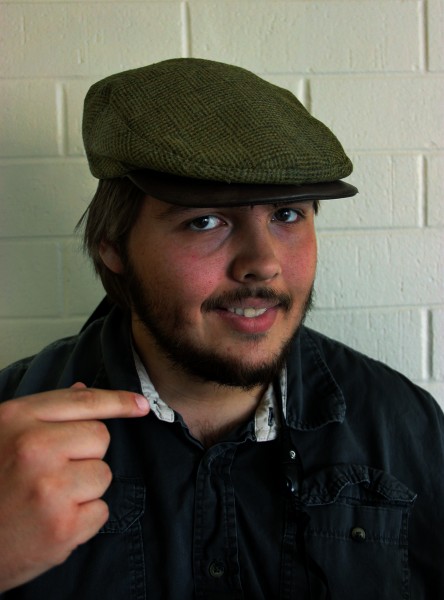
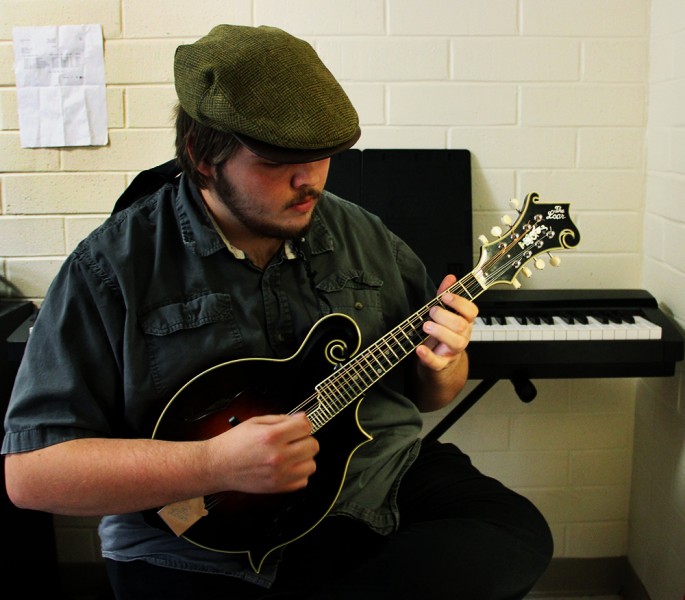
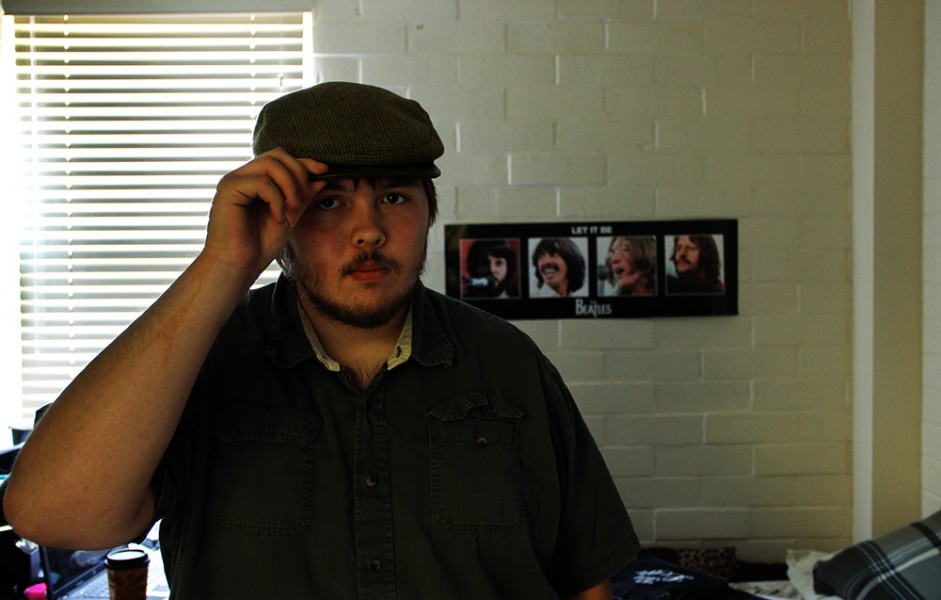
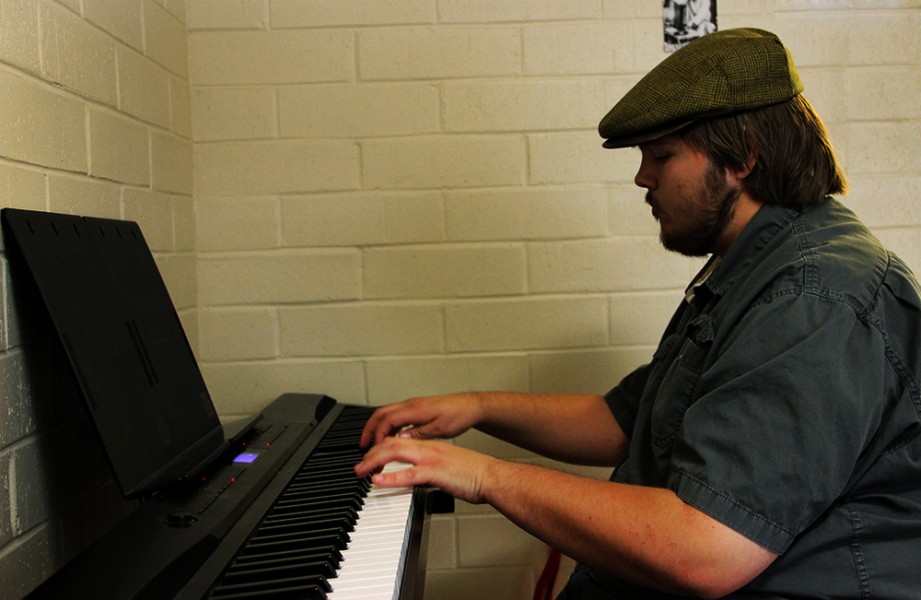
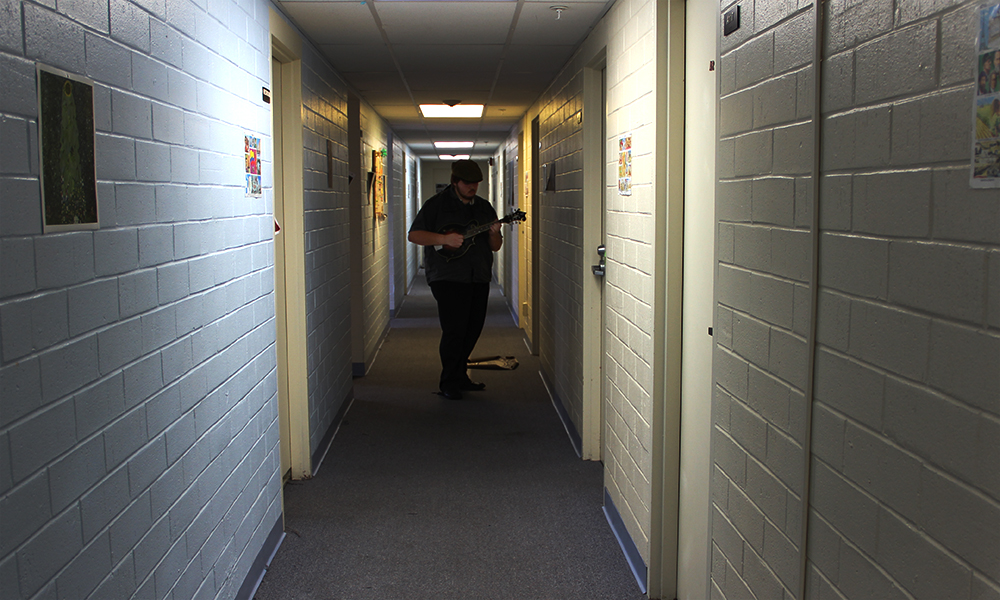
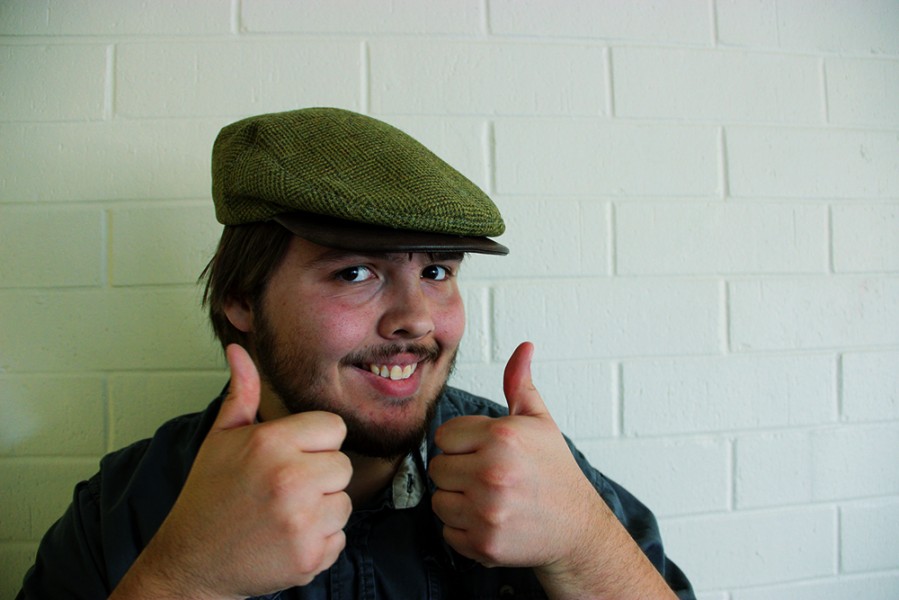
 Jackalope Magazine is the student magazine of Santa Fe University of Art and Design. Building on the interdisciplinary nature of our education, we aim to showcase the talent of our university and character of our city.
Jackalope Magazine is the student magazine of Santa Fe University of Art and Design. Building on the interdisciplinary nature of our education, we aim to showcase the talent of our university and character of our city.
Recent Comments